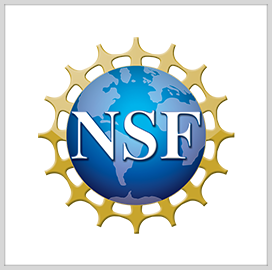
Quantum sensing
NSF to Fund Research Teams Exploring Potential Quantum Sensor Uses
The National Science Foundation will invest $29 million in 18 research teams exploring quantum sensor technologies and their potential applications, including in health care and geological surveying and mapping.
The teams, comprising researchers from various U.S. universities, will receive up to $2 million in funding over four years under the Quantum Sensing Challenges for Transformational Advances in Quantum Systems program, the NSF said.
Selected teams include University of Wisconsin-Madison researchers, who will build portable accelerometers and atomic clocks for timekeeping and inertial sensing, and University of Oregon researchers, who will develop key components for a quantum-enhanced telescope for improve imaging of astronomical objects and remote sensing.
Other projects are focused on sensors that could enable doctors to identify infections inside individual cells and allow geologists to find subterranean mineral deposits, among other potential uses.
Investing in such research efforts is part of the NSF strategy to harness scientific and technological advances quantum technology offer, in accordance with the National Quantum Initiative Act passed in 2018.

Category: Federal Civilian




